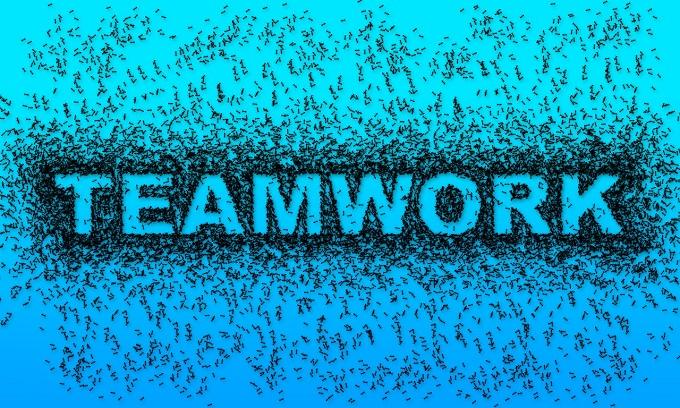Summary:
Too often team meetings feel draining. But what if they accelerated the progress they often stifle? Managers can take a page from the startup world, where “mastermind meetings” are all the rage. Entrepreneurs routinely sign five-figure checks for the privilege of joining other founders and answering a single question — what are you stuck on? — before an audience of their peers. The benefits of asking this question include: reduced procrastination, stronger resilience, greater trust, less “coasting,” and more growth.
When was the last time you left a work meeting feeling inspired, motivated, or energized? If you’re like most people, the answer is seldom.
Team meetings, in particular, suffer a dreadful reputation. They’re considered unproductive, unnecessary, exhausting, disorganized, and stressful. Worse, they eat up valuable time, prevent us from moving the needle on important projects, and leave us wondering why we can’t seem to get anything done during regular work hours.
We all hate meetings. But what if we didn’t? What if meetings accelerated the progress they now stifle?
Not all meetings are universally reviled. Some are highly coveted, like in the world of startups, where “mastermind meetings” are all the rage. Entrepreneurs routinely sign five-figure checks for the privilege of joining other founders and answering a single question before an audience of their peers.
The question: What are you stuck on?
Naming your biggest obstacle in a room full of strangers may not strike you as a particularly enticing proposition. Yet many founders see it differently. They view these so-called “hot seats,” as an opportunity to gain clarity on major barriers and identify solutions they never would have considered working alone.
It’s a question intelligent leaders would do well to consider incorporating into team meetings. Doing so introduces a collaborative forum for creative problem-solving, and provides a wealth of compelling benefits:
Reduced Procrastination
Knowing the question will be posed prompts your team to self-reflect ahead of each meeting. It’s an invitation to step back and think deeply about what they are really trying to achieve, as well as the barriers getting in the way.
That level of clarity is rare, especially when it comes to obstacles. One major reason people procrastinate at work is that they are unclear on how to move a project forward. Lack of clarity makes us uncomfortable, and that discomfort is something we seek to avoid, often by immersing ourselves in distractions. By inviting team members to pinpoint and publicly share an obstacle, leaders snuff out procrastination before it takes hold.
Stronger Resilience
Posing the “stuck” question communicates that feeling challenged is not an experience that needs to be hidden or feared. It’s expected.
That perspective is useful because it fosters resilience. It’s much easier to weather adversity when we anticipate being tested. In contrast, when struggle arrives unexpectedly, it shakes our confidence and leads us to question our abilities.
Greater Trust
After each teammate responds to the “stuck” question, there’s an opportunity for their colleagues to provide input — allowing teammates to mentor each other, harness one another’s strengths, and discover untapped expertise. It’s a practice that organically nurtures greater collaboration.
Being honest and forthright about our challenges also fosters more open dialogue between colleagues, facilitating the experience of psychological safety. In other words, it doesn’t just yield more progress on key projects, it also creates tighter-knit teams.
Exposed “Coasting”
What happens when a team member says they’re not stuck? Often, nothing to report is an indication that there’s something wrong. Either the employee is not feeling stretched, or they are unwilling to share. In either case, it’s worth having a one-on-one conversation to dig deeper. Engagement comes from stretching, not coasting along. The “stuck” question helps leaders ensure that everyone on their team is growing.
Motivated Growth
Spanx founder Sara Blakely famously shared a question her father asked at the dinner table, back when she was growing up: “What did you fail at today?” If Blakely or her siblings had nothing to report, her dad seemed crestfallen. He longed for them to appreciate that failure, though painful in the short term, is vital to achieving long-term success.
While the Blakely question has value, the word “failure” carries a stigma that makes it difficult to implement in the workplace. In contrast, feeling “stuck” conveys a similar experience with considerably less shame. It offers leaders a tool for communicating that pushing yourself and finding your limits is desirable, without coming across as preachy or out-of-touch.
. . .
Team meetings shouldn’t have to feel draining. Instead of robbing us of time, energy, and focus, they can do the opposite: Accelerate our progress, draw us closer to our team, and empower us to achieve more. As with any good solution, the secret to better meetings lies in first asking the right question.
Copyright 2023 Harvard Business School Publishing Corporation. Distributed by The New York Times Syndicate.
Topics
Team Building
Working with and Through Others
Influence
Related
Applying Cross-Functional Team Methodology in Healthcare: Critical Considerations from Lived ExperienceHuman Resources: Motivation and Employee RetentionDoes Your C-Suite Really Operate as a Team?Recommended Reading
Team Building and Teamwork
Applying Cross-Functional Team Methodology in Healthcare: Critical Considerations from Lived Experience
Team Building and Teamwork
Human Resources: Motivation and Employee Retention
Team Building and Teamwork
Does Your C-Suite Really Operate as a Team?
Professional Capabilities
Championing Physician Leadership Development: AAPL's Five-Decade Commitment Meets Healthcare's Critical Moment
Professional Capabilities
“Profiles in Success”: Certified Physician Executives Share the Value and ROI of their CPE Education
Professional Capabilities
Measuring Leadership Growth: Metrics as a Part of Physician Leadership Development



